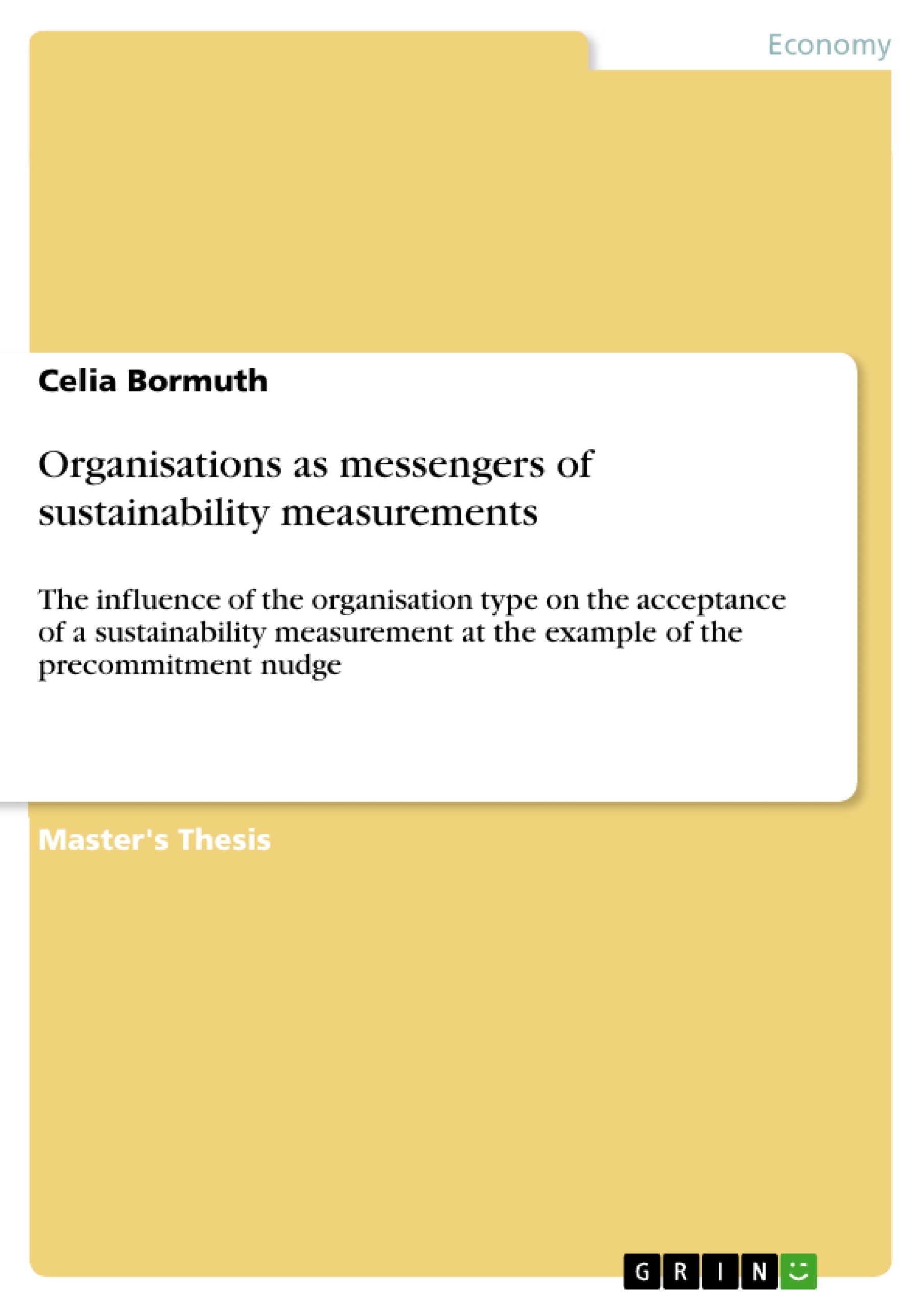Consumers increasingly integrate sustainability into their decision making. This is relevant for non-market players who aim to support sustainable consumer behaviours. This research explores how business, governmental and civil society players as a messenger influence the success of their communication initiatives to promote sustainable consumer behaviours. Therefore, the method of nudges will be taken as an example with a precommitment nudge.
Inhaltsverzeichnis (Table of Contents)
- Abstract
- Abbreviations list
- Introduction
- Literature Review
- Theoretical Framework
- Methodology
- Results
- Discussion
- Conclusion
- Limitations
- Future Research
- References
Zielsetzung und Themenschwerpunkte (Objectives and Key Themes)
This dissertation examines how different types of organizations, including business, governmental, and civil society players, can effectively communicate sustainability initiatives to promote sustainable consumer behavior. The focus is on the influence of the messenger on the acceptance of sustainability measurements, using the precommitment nudge as an example.
- The role of organizations as messengers of sustainability measurements
- The impact of organization type on the acceptance of sustainability measurements
- The effectiveness of precommitment nudges in promoting sustainable consumer behavior
- The relationship between digitalization and sustainability communication
- The ethical considerations of using nudges in sustainability initiatives
Zusammenfassung der Kapitel (Chapter Summaries)
- The introduction provides an overview of the research topic and its relevance in the context of increasing consumer awareness of sustainability. It outlines the research questions and the methodological approach.
- The literature review explores existing research on sustainability communication, nudges, and the role of different organization types in promoting sustainable consumer behavior. It establishes the theoretical framework for the study.
- The theoretical framework presents a comprehensive model that integrates key concepts and theories from the literature review. It explains the expected relationships between organization type, communication strategies, and the acceptance of sustainability measurements.
- The methodology section details the research design, data collection methods, and data analysis techniques used in the study. It includes information about the sample, the questionnaire, and the statistical analyses conducted.
- The results chapter presents the findings of the study, providing insights into the relationship between organization type, message framing, and the acceptance of precommitment nudges. It analyzes the data gathered through the survey.
- The discussion chapter interprets the results, drawing connections between the findings and existing literature. It highlights the implications of the research for practitioners and policymakers working in the field of sustainability.
Schlüsselwörter (Keywords)
This dissertation focuses on the crucial themes of sustainability, consumer behavior, communication, nudges, precommitment, digitalization, and organizational influence. It explores the impact of various organization types, such as business, government, and civil society, on the acceptance of sustainability measurements, utilizing the precommitment nudge as a case study. The research highlights the importance of effective communication strategies in promoting sustainable consumer behavior.
Frequently Asked Questions
How do organizations influence sustainable consumer behavior?
Organizations act as messengers; their type—whether business, government, or civil society—affects how consumers perceive and accept sustainability initiatives.
What is a "precommitment nudge"?
A precommitment nudge is a behavioral tool that encourages individuals to commit to a sustainable action in advance, increasing the likelihood of follow-through.
What are the key themes of this research?
The research focuses on sustainability communication, consumer behavior, digitalization, and the ethical considerations of using nudges.
Why is the "messenger" important in sustainability communication?
The credibility and trust associated with the organization sending the message significantly influence the success of initiatives aimed at promoting green behaviors.
What role does digitalization play in this context?
Digitalization affects how sustainability messages are framed and delivered, providing new platforms for organizations to interact with consumers.
- Citar trabajo
- Celia Bormuth (Autor), 2022, Organisations as messengers of sustainability measurements, Múnich, GRIN Verlag, https://www.grin.com/document/1286637



